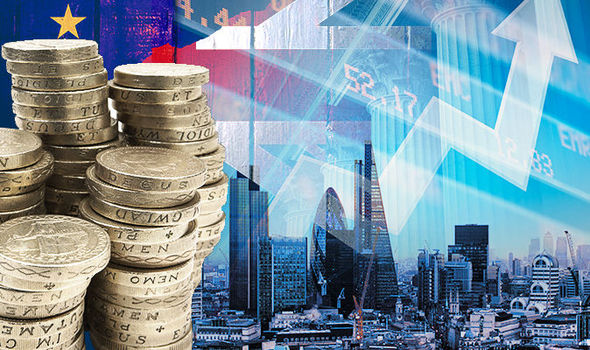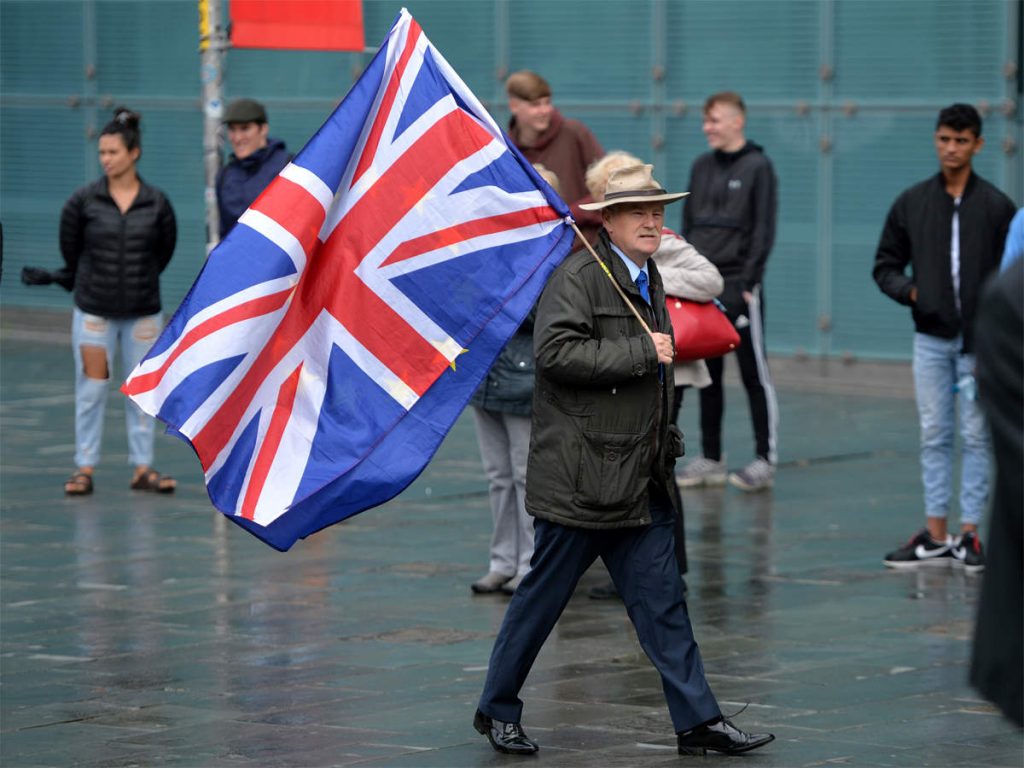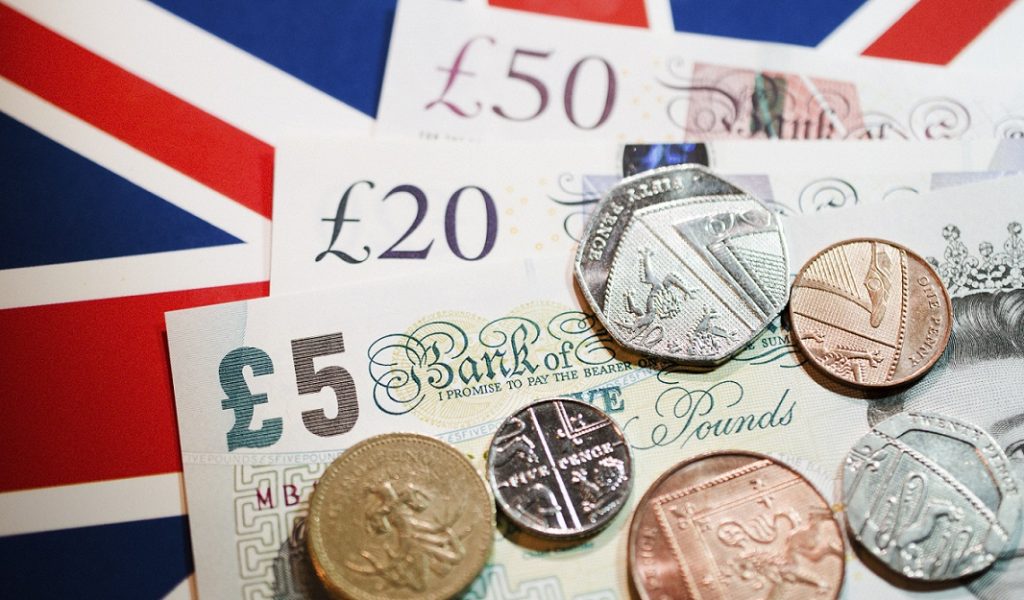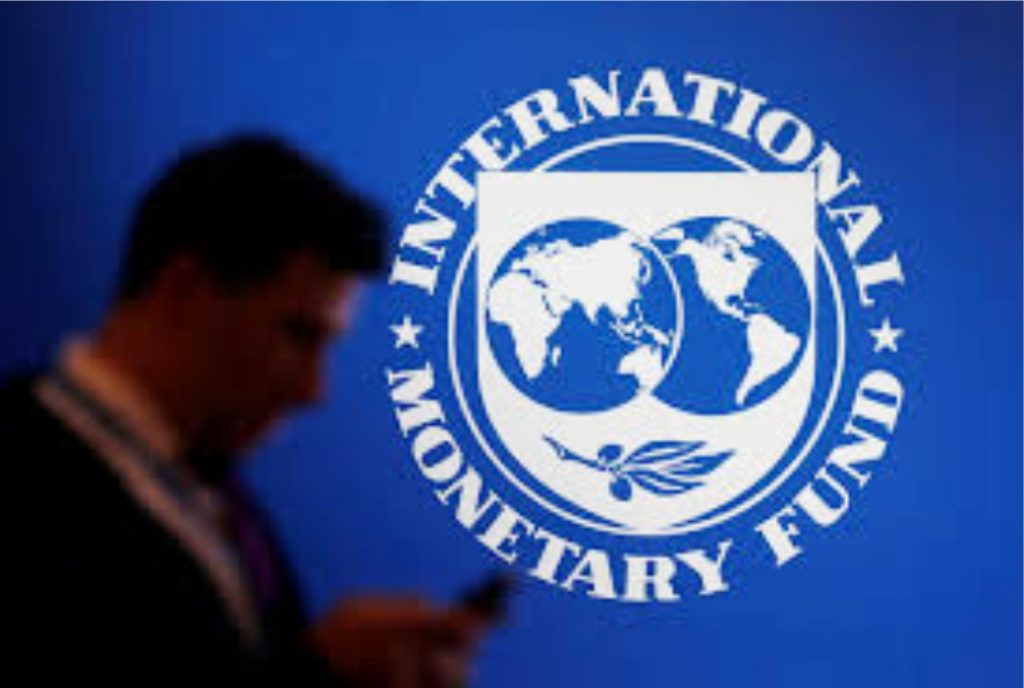Zain Ali Khan
The UK economy begins 2021 on the back foot as record numbers of coronavirus infections and tougher restrictions cloud the outlook for growth and limit the chances of a rapid recovery from the country’s worst recession in 300 years. There had been hopes that the arrival of successful Covid vaccines could prompt a rebound in activity. But with new government controls to combat the rising infection rate, the outlook is deteriorating. Here are five charts for the UK’s economic prospects in 2021.

GDP
Rising coronavirus infections and lockdown controls are expected to weigh on the economy in the opening months of the year before enough people can receive the vaccine and restrictions can be relaxed. Gross domestic product (GDP) was expected to grow by 5.5%, according to Office for Budget Responsibility forecasts in November. While this would mark the strongest growth rate since the late 1980s, the depth of the Covid recession means the economy would not return to its pre-pandemic peak until late 2022.
Since the launch of tougher Covid restrictions, the Resolution Foundation thinktank now expects GDP could be as much as 6% smaller by Easter than forecast, cutting the 2021 growth rate to 4.3%. Other countries around the world are also grappling with a renewed surge in the virus, but forecasts by the Organisation for Economic Co-operation and Development published in early December ranked the UK behind every major economy apart from Argentina. Despite a last-minute Brexit trade deal, disruption is still expected as companies adapt to new EU arrangements. Economists view Boris Johnson’s deal as a “hard Brexit”, because it involves more barriers to trade than EU membership and other possible alternatives. As a result, the OBR estimates a long-term loss of output of about 4% compared with remaining in the EU.

Unemployment
Unemployment is poised to spiral up in 2021 once the furlough scheme is closed – scheduled for the end of April after several extensions – in one of the biggest challenges facing the government. Redundancies were rising at the fastest rate on record towards the end of 2020 as companies struggled to stay afloat during the pandemic. However, despite attempts by the chancellor, Rishi Sunak, to close the scheme and replace it with a less generous system of wage subsidies, furlough has prevented unemployment from scaling to even greater heights. The OBR estimates the jobless rate will peak at about 7.5% in the middle of 2021 – representing about 2.6 million people out of work – up from about 4% before the pandemic struck. However, the forecast was made before tougher coronavirus restrictions were introduced.
Public finances
The UK government is on track to record a budget deficit – the gap between public spending and income from taxes – of £394bn for the financial year to March 2021, in a reflection of emergency spending and sliding tax receipts during the pandemic. As a result, the national debt – the combined total of every deficit – has risen above £2tn. Equivalent to more than 100% of GDP, it is expected to remain at about that level over the next five years.
Sunak has said “hard choices” need to be taken to balance the books, and the deficit will colour much of the UK’s political debate over the course of 2021.
Record levels of public borrowing are expected to recede as the economy recovers and emergency support is scaled back, but a deficit of about £164bn is still expected in the year ending March 2022. While this is still bigger than the deficit incurred because of the 2008 financial crisis, most economists agree that a rerun of austerity should be avoided, and that tax rises should be used once a sustainable economic recovery has taken hold.
Inflation
Inflation, the measure of annual average growth in consumer prices, dropped to among the lowest levels on record in 2020. Driven by falling global oil prices and companies cutting their prices in response to a sharp drop in demand, the consumer price index (CPI) has fallen to 0.3% in the UK.
Some economists worry that a rapid economic recovery could trigger a burst of inflation that would erode households’ finances. At a time of record debt levels, it could also lead to the Bank of England raising interest rates and higher borrowing costs for the government. Inflation expectations are gradually rising. However, the OBR forecasts inflation to remain below the Bank’s 2% target rate until at least 2025. Threadneedle Street has also said it does not intend to raise rates until there is “clear evidence” of a stronger economic picture emerging.
Some analysts believe the Bank is more likely to cut interest rates from the current level of 0.1% – already the lowest rate in its 326-year history – into negative territory. Negative rates would involve charging commercial banks to deposit funds with the central bank, with the aim of encouraging lending to boost the economy.
House prices
House prices in the UK are expected to fall sharply next year, driven by rising unemployment and the end of the government’s stamp duty holiday. Despite the worst recession in three centuries, house prices hit a six-year high at the end of 2020 as people rushed to use the tax break and many re-evaluated their living arrangements during lockdown. However, mortgage lenders believe a sharp decline is coming. Halifax, Britain’s biggest mortgage lender, estimates an annual drop of between 2% and 5%, while the OBR is more pessimistic, predicting an 8% fall in prices. UK offers extra $6.2 billion to firms to soften new COVID-19 recession.
UK would be the deepest economy in 300 years.
The UK economy will be among the hardest hit by the pandemic, a leading international agency has suggested. Organisation for Economic Co-operation and Development (OECD) predicts that by the end of 2021 it will be more than 6% smaller than before the Covid health crisis. Among the world’s major economies only Argentina is predicted to do worse.
By contrast, the OECD predicts the global economy overall will be back to pre-pandemic levels by then. There is some cautious optimism for next year and beyond in this report, but that is struggling against the immediate fact that there have been new virus outbreaks and containment measures.
That is likely to lead to further declines in economic activity in the short term in some countries, especially in Europe. Nonetheless, the report says that for the first time since the pandemic began there is now hope for a brighter future.

Recent vaccine developments are the reason. “Progress with vaccines and treatment have lifted expectations and uncertainty has receded.” But the uncertainty hasn’t gone away, and even if the vaccine hopes are fulfilled, there will be further economic strains, the report says, during the wait for them to be widely distributed. For Britain, the OECD predicts the economy will shrink in 2020 by 11.2%, followed by growth of 4.2% and 4.1% in the next two years. The UK economy’s expected contraction of more than 11% would be the deepest in 300 years.
Unemployment will rise to an average of 7.4% in 2021, though as it is an average the peak would likely be somewhat higher. Before the crisis, the figure was below 4% so that’s a large increase, though many other countries are likely to see higher levels.
The report says it’s important for the UK to conclude a trade deal with the European Union by the end of the year. Failure to do so would, it says, “entail serious additional economic disturbances in the short term and have a strongly negative effect on trade, productivity and jobs in the longer term”.
Uneven
The OECD says the government and the Bank of England should maintain policies to support the economy until a recovery is well underway. For the world economy, the recovery predicted next year is uneven. A third of the global growth is down to China, which by the end of next year is forecast to be almost 10% ahead of where it was at the end of 2019.
The rich countries will rebound in 2021 but it will be only a partial recovery from this year’s recession. Among the major developed economies, only the US is forecast to be ahead of pre-pandemic levels by the final quarter of next year and even that is by a small margin.
Most, including the UK will be significantly behind. So too will several important developing economies in addition to Argentina, including India and South Africa.
UK economy will not return to pre-Covid levels in 2021, IMF forecasts
The International Monetary Fund (IMF) has said the UK’s hopes of a v-shaped recovery will face serious headwinds from a second wave of coronavirus, and Brexit and the economy will not return to pre-pandemic levels in 2021. The initial sharp economic rebound was also being hurt by rising unemployment and stress on corporate balance sheets, it said.
We are at a time of high uncertainty. We are not projecting a return to pre-crisis levels in 2021,” said Kristalina Georgieva, the IMF’s managing director. “We are very keen to advise everyone to be agile and flexible in policy response as the pandemic continues.”
The IMF now projects the UK economy will contract by 10.4 per cent in 2020 and only grow by 5.7 per cent next year, worse than previous expectations. In June it projected a 10.2 per cent contraction this year and 6.3 per cent growth in 2021.

It said persistent unemployment and lower productivity growth will keep gross domestic product (GDP) around 3 per cent to 6 per cent below its pre-pandemic trend for the medium term.
The IMF praised the UK “authorities’ aggressive policy response — one of the best examples of co-ordinated action globally” but warned that policy support will need to continue to see the economy through Covid-19 and help it transition after Brexit. The report found there is a case to spend more money to fuel the recovery, if the effectiveness of projects can be maintained.
The UK was already dealing with pre-existing economic challenges like regional inequality, transitioning to a post-Brexit regime, poor productivity growth and an ageing population before the pandemic. Ms Georgieva said the IMF’s expectations include a presumption that the UK and EU will reach a deal. Chancellor Rishi Sunak said: “We have a responsibility to ensure the next generation inherits a strong economy backed by strong public finances.
“Let’s be clear on what the fund are saying today: it’s right to support the economy in the short term but over time, and in line with other major economies, we must get our public finances back on a sustainable path.”







